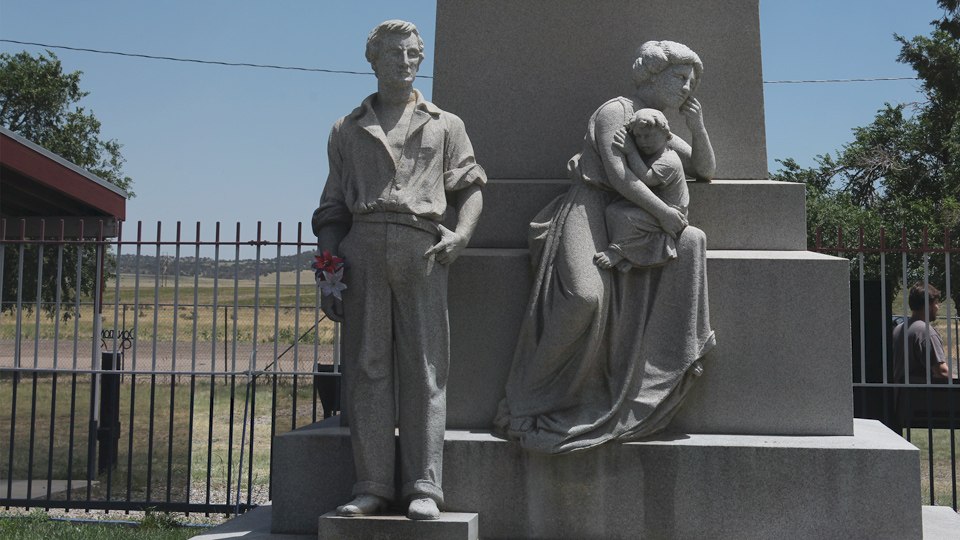
Original source: On April 20, 1914, in Ludlow, Colo., one of the bloodiest chapters in the nation’s labor history was written. Thugs hired by several coal companies and the Colorado militia attacked a peaceful encampment of striking miners and their families. By the end of the day, 20 were shot or burned to death, including 14 women and children.
It has long been a hallowed site: In 1918, the Mine Workers (UMWA) erected a monument there. Yet for decades, despite the efforts of historians and labor activists, there was no state or national commemoration of the site.
But last month, the U.S. Department of the Interior designated Ludlow a National Historic Landmark. Says UMWA President Cecil Roberts:
This is the culmination of years of work by UMWA members, retirees and staff, as well as many hundreds of ordinary citizens who recognize and have fought to preserve the memory of this brutal attack on workers and their families.
The tragic lessons from Ludlow still echo through our nation, and they must never be forgotten by Americans who truly care about workplace fairness and equality. With this designation, the story of what happened at Ludlow will remain part of our nation’s history. That is as it should be.
In 1913, southern Colorado miners and their families walked out of the mines and mining camps striking for adequate wages, enforcement of state mining laws and union recognition. For more than a year, they lived in tent colonies near the mines. According to UMWA history of the Ludlow Massacre:
Upon striking, the miners and their families had been evicted from their company-owned houses and had set up a tent colony on public property. The massacre occurred in a carefully planned attack on the tent colony by Colorado militiamen, coal company guards, and thugs hired as private detectives and strike breakers.
They shot and burned to death 20 people, including a dozen women and small children. Later investigations revealed that kerosene had intentionally been poured on the tents to set them ablaze. The miners had dug foxholes in the tents so the women and children could avoid the bullets that randomly were shot through the tent colony by company thugs. The women and children were found huddled together at the bottoms of their tents.
Roberts says Ludlow hallowed ground for the UMWA and also for
union members and working people worldwide. We have preserved the site from that terrible day to this, and we are extremely gratified that the U.S. National Park Service has agreed to preserve it from now on, so that future generations can learn the lessons of this dark chapter in our nation’s history.
Since erecting the monument, the union has maintained the site, including installing interpretive markers and displays, as well as building a shelter where the annual Ludlow Memorial is held. A dedication ceremony is planned for late June.

MOST POPULAR TODAY

High Court essentially bans demonstrations, freedom of assembly in Deep South

Zionist organizations leading campaign to stop ceasefire resolutions in D.C. area

U.S. imperialism’s ‘ironclad’ support for Israel increases fascist danger at home

UN warns that Israel is still blocking humanitarian aid to Gaza






Comments